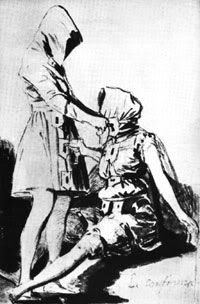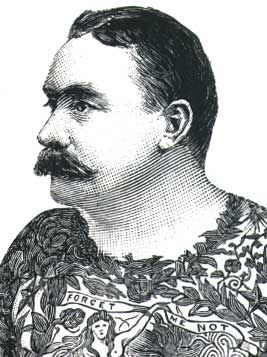¿Puedo tutearlo?
 The use of 'tú' or 'usted' takes some understanding, and causes some fear about getting it wrong and giving offence. Once, it was easy: "Usted is the only word with which persons address and are addressed in ordinary conversation in Spanish", states an old manual. Since then, the world has become a friendlier place (yes), and the familiar form is more the norm.
The use of 'tú' or 'usted' takes some understanding, and causes some fear about getting it wrong and giving offence. Once, it was easy: "Usted is the only word with which persons address and are addressed in ordinary conversation in Spanish", states an old manual. Since then, the world has become a friendlier place (yes), and the familiar form is more the norm.Is it after the first kiss?
Many of us have difficulties. Here are some comments from the wordreference forum.
"I translate romantic novels from English into Spanish and it is very tricky to find the moment when the boss and the secretary or the doctor and the nurse switch from usted to tú. Is it after the first kiss? Is it before?" (Mary Solari)In much of Latin America it's different again: 'ustedes' is used even with family members; 'vosotros' is seldom used. And in some parts, 'vos' replaces 'tú', and 'tú' is used with people merely known.
Consequently, South Americans worry about their reception in Spain:
"I never learned 'vosotros' and mis amigos madrileños laugh at me when I speak to them in 'Uds' ... I wonder, if I ever move to Spain, will I have to learn it? Will I pick it up naturally? Will people forgive me and know I learned my Spanish on this side of the Atlantic?"(Lisa)Mary Solari replies:
"Don't worry, Lisa, I had never used vosotros in my life and have adopted it very easily since living in Spain."Maeron:
"I asked some Spanish friends about this, and they said it doesn't sound so strange to them that we call them Uds. because they are acquainted with it from watching Latin American telenovelas."
No hay nada malo
As we no longer use 'ye' in English, we often have to explain when we mean a plural 'you', not a singular. Ambiguities can also arise in Spanish with the forms of 'you':

El director general de un banco se preocupa por un joven director estrella, quien después de un período de trabajar a la par de él, sin parar nunca a almorzar, empieza a ausentarse al mediodía.
Así que llama al detective privado del banco y le dice: "Siga a López un día entero, no vaya a ser que ande en algo extraño."
El detective cumple con el cometido, regresa e informa:
"López sale normalmente al mediodía, toma su auto, va a su casa a almorzar, luego le hace el amor a su mujer, se fuma uno de sus excelentes cigarrillos y vuelve a trabajar."
"¡Ah, bueno!, ¡menos mal!, no hay nada malo en todo eso."
"Puedo tutearlo, señor?" pregunta el detective.
"Sí, como no", responde sorprendido el director general.
"Repito: López sale normalmente al mediodía, toma tu auto, va a tu casa a almorzar, luego le hace el amor a tu mujer, se fuma uno de tus excelentes cigarrillos y vuelve a trabajar."
Vuestra merced
'Usted' derives from 'vuestra merced' (literally your mercy), meaning your grace, your honour, your worship, or your highness (though a king is addressed 'su alteza'); and is voiced in the third person. 'Vuestra merced' was first used in colonial times and has evolved down through many forms to 'vusted', then 'usted'; abbreviated 'Vd.' or 'Ud.' (Some say the evolution has continued, through 'usté', to 'u'té'!)
Which to use
More from the wordreference forum:
"Usted nowadays is just a polite form that you use to talk to someone you do not know, to someone who is much older than you, to talk to someone showing respect. If you want to go one step farther, you can ask 'puedo tutearlo?', and if the person agrees, you can start using 'tú'."Alternatively, you can ask them to 'tú' you: "Tutéame, por favor."
Or you can heed the old Yorkshire advice to follow the person you're talking with: "Thee thou them as thou's thee, and not afore."
For a full explanation in Spanish of the use of the forms 'tú' and 'usted' see this page on Protocolo y Etiqueta, where there's lots of valuable advice on correct behaviour in Spain.
There's a 'Notes from Spain' podcast on the subject of tu and usted.
Joke from extrasensorial.com.
More info (in English): Formal and informal 'you'.
tutear, to address as 'tú' (regular '-ar' verb)
Main image: La Confianza ('Confidence') by Francisco de Goya.


0 Comments:
Post a Comment
<< Home